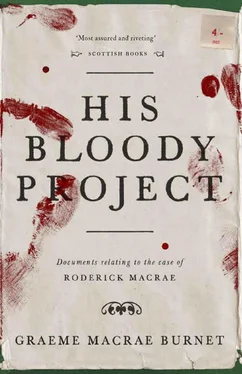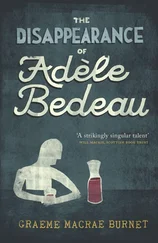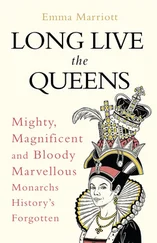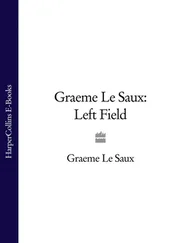‘But you offered him no practical advice as to how to deal with the situation in which he found himself?’
‘I led him in prayer.’ This brought a ripple of laughter from the gallery, which was rapidly quelled by a stern look from the preacher.
Mr Gifford thanked the witness and resumed his seat.
Mr Sinclair then rose for the defence.
‘Was the prisoner, Roderick Macrae, present during your visit?’
‘He arrived home as I was leaving.’
‘Did you converse with him?’
‘In the briefest terms.’
‘Did the prisoner attend your church?’
‘He did not.’
‘Had he ever attended your church?’
‘When he was a child.’
‘And he ceased attending when?’
‘I could not say with any certainty.’
‘One year ago or five years ago?’
‘Closer to one or two years ago.’
‘Would that be around the time of the death of his mother?’
‘Around that time.’
‘As you have stated that you are concerned with the spiritual wellbeing of your parishioners, can you tell the court what steps you took to persuade the prisoner to resume his attendance?’
‘It is not my role to compel parishioners to attend. I am not a whipper-in.’***
*** A ‘whipper-in’ was an official who travelled round rural districts ensuring that children attended school.
‘So you were not worried about his non-observance?’
‘A shepherd must concern himself with the wellbeing of his flock as a whole. If the flock contains black sheep, they must be cast out.’
‘And Roderick Macrae is a black sheep?’
‘We would hardly be gathered in this court-room if that were not the case.’
The remark was, observed the wry Mr Philby, ‘likely the closest the stern Presbyterian had ever come to making a joke’.
‘Quite so,’ replied Mr Sinclair. ‘But if I may press you a little, what was it that so marked out Roderick Macrae?’
‘The boy is a malevolent individual.’
‘“Malevolent” is a strong word, Mr Galbraith.’
The minister made no reply to this observation. Mr Sinclair tried again: ‘How did this malevolence manifest itself?’
‘Even as a child, the boy had no respect for the Lord’s House. He was shifty and inattentive to prayer. I once caught him relieving himself within the grounds of the church.’
The Lord Justice-Clerk here struck his gavel to subdue the laughter that emanated from the gallery.
‘I see,’ said Mr Sinclair. ‘Would you say that you saw signs of madness in the prisoner?’
‘I would say that I saw signs of wickedness in him.’
‘What signs were these?’
Mr Galbraith apparently did not think this question worthy of response. The judge instructed him to answer.
‘One need only to observe him. If it is not apparent to you, I would suggest that you are as Godless as he is, sir,’ he replied witheringly.
Mr Sinclair smiled thinly at the witness. ‘I am only seeking your comments as an educated man about the temperament of the prisoner,’ he said.
‘My observation is that the boy is enslaved to the Devil, and if proof is required we need only look to the deeds he has committed.’
Mr Sinclair nodded wearily and the witness was excused.
The next witness could hardly have struck a greater contrast to the clergyman. Archibald Ross’s appearance in the court-room caused a great deal of mirth in the gallery. He was dressed in the style of a country gentleman, in ‘a suit of yellow tweeds, quite obviously procured for the occasion’. He wore highly polished shoes with large square buckles and, round his neck, a green silk cravat. He was, wrote Mr Philby, ‘every inch the dandy, and his appearance might lead an observer to conclude that the far-flung village of Applecross, where he resides, must indeed be quite à la mode ’.
After some preliminaries regarding Ross’s place of birth and occupation, Mr Gifford asked how he had made the acquaintance of the prisoner. Ross then described how he had met Roddy in the courtyard outside the stables of Lord Middleton’s house.
‘And what was the prisoner’s role that day?’
‘To carry a coffer up the mountain.’
‘And what did that coffer contain?’
‘Refreshments for the shooting party.’
‘And did the prisoner carry out this duty competently?’
‘That part of his duty, yes.’
‘After this day did you ever meet the prisoner again?’
‘I did.’
‘When did this meeting occur?’
‘Some weeks ago on the day of the Gathering.’
‘This was the 31st of July?’
‘If you say so,’ replied Ross with a grin.
‘Please tell us what occurred.’
Ross described how he had met the prisoner outside the inn at Applecross and how they had gone inside and drunk a quantity of ale. They had then walked to the Big House to watch the shinty match between the villages.
‘Were you inebriated?’
‘Perhaps to a small degree.’
‘Was the prisoner inebriated?’
‘I would say so.’
‘Did the prisoner divulge any intimacies to you?’
‘He told me that he wanted to go to Glasgow to make his fortune, but that he was reluctant to do so as he had become attached to a local girl.’
‘And who was this local girl?’
‘Flora Mackenzie.’
‘And this Flora Mackenzie was the daughter of the deceased Lachlan Mackenzie?’
‘Yes.’
This revelation caused an uproar in the gallery, which it took repeated threats from the bench to subdue.
‘And who is herself one of the victims of the crimes here charged?’
‘Yes.’
‘And did the prisoner tell you anything further concerning his relationship to the deceased Miss Mackenzie?’
‘He told me that she had rejected him and that, in any case, there existed some bad blood between their two families and their parents would never consent to them being wed.’
This brought further exclamations from the gallery.
‘You then watched the shinty match?’
‘Yes.’
‘Then what?’
‘We drank some whisky and then Roddy spotted this girl —’
‘Flora Mackenzie?’
‘Yes. He spotted her walking in the grounds of the Big House with a friend.’
‘And what did you do?’
‘I expressed the view that he should openly convey his feelings to the girl so that he might properly know where he stood with her.’
‘And did he agree?’
‘Not exactly, but I insisted and we caught up with the girls and introduced ourselves.’
At this point, Mr Philby reported, the ‘generally disinterested prisoner displayed some signs of agitation, hunching low over his knees, as if hoping that he might find a farthing on the floor of the dock’.
‘Then what happened?’
‘We walked a little way together.’
‘Where did you walk?’
‘To a small bridge among some trees.’
‘A secluded spot?’
At this point Archibald Ross made a ‘lewd wink’ to counsel and replied, to much laughter, ‘I construe that you are no stranger to such adventures.’
Mr Gifford ignored his remark.
‘And what happened there?’
‘In order that Roddy might be alone with the object of his affectations [sic], I led Flora’s companion onto the bridge and indicated to him that he should continue along the path.’
‘Then what?’
‘I made some conversation with the girl and then some time later, Flora Mackenzie came back along the path.’
‘Was she walking or running?’
‘She was running.’
‘And she was alone?’
‘Yes.’
‘How much time had elapsed?’
‘A matter of minutes.’
‘And what did she do?’
‘She took her friend by the arm and led her away.’
Читать дальше












